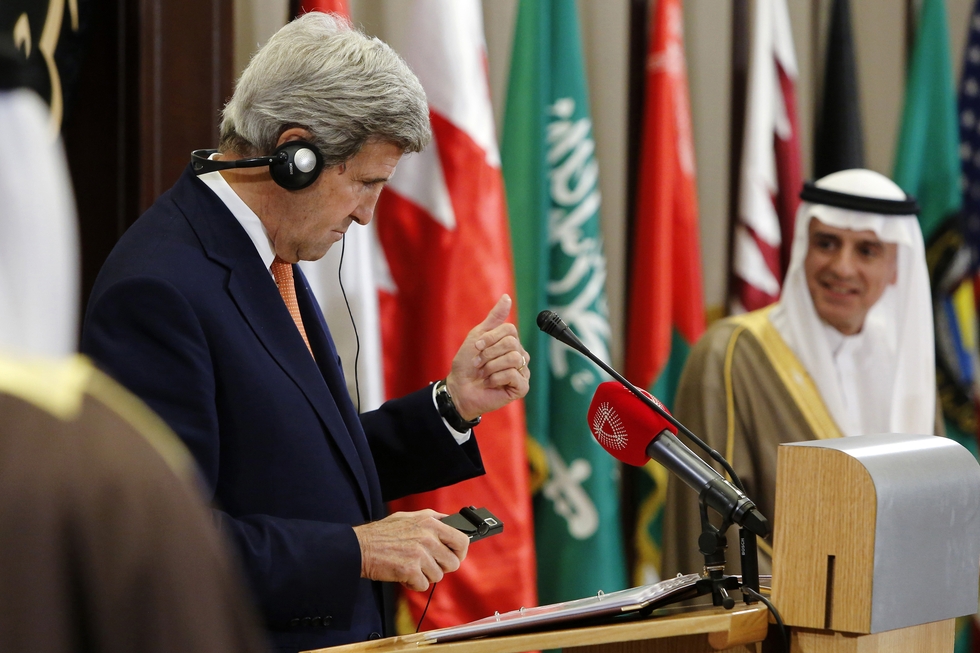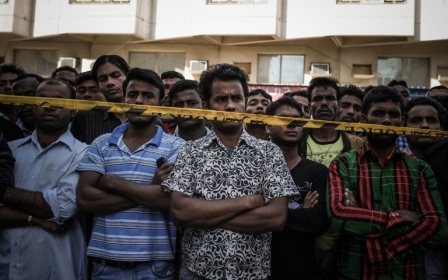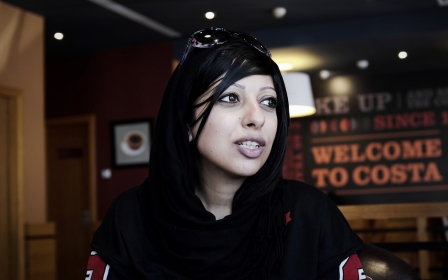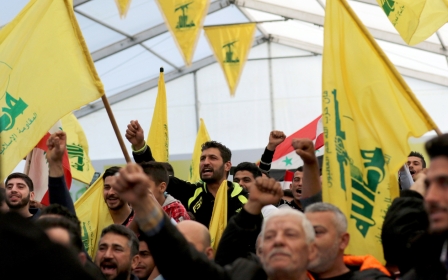Kerry visits Bahrain for first time in six years

US Secretary of State John Kerry on Thursday visited the tiny Gulf country of Bahrain for the first time in six years.
Kerry told authorities in Manama who have been accused of discriminating against the country's Shia majority that respect for human rights is "essential".
Kerry urged authorities to adopt an "inclusive political system".
"Here, as in all nations, we believe that respect for human rights and an inclusive political system are essential," Kerry said.
"We all welcome steps by sides to create conditions to provide for greater political involvement for the citizens of this great country," he added.
In 2011, the tiny but strategic island state, which is dominated by a ruling family drawn from the Sunni minority, crushed a Shia-led uprising calling for a full constitutional monarchy with an elected prime minister.
Kerry also urged Iran to help end wars raging in Yemen and Syria, and criticised the Islamic republic's "destabilising actions" in the Middle East.
Kerry later held a meeting with his Gulf Arab counterparts, two weeks before President Barack Obama is scheduled to attend a summit of the six-nation Gulf Cooperation Council (GCC) in Riyadh where Washington's Middle East policy is likely to come under the microscope.
Speaking during a joint news conference with Bahraini Foreign Minister Sheikh Khalid bin Ahmed al-Khalifa, the top US diplomat condemned "the destabilising actions of Iran, which the United States takes very seriously".
Kerry said the US Fifth Fleet, which is based in Bahrain, last week interrupted a shipment of weapons destined for Houthi rebels in Yemen.
"We call on Iran to constructively join in the efforts to make peace and to help us to resolve Syria and rather than to continue to send weapons to Houthis, join in the effort... to make peace and to work toward a cessation of hostilities," Kerry told reporters.
Tehran and the Gulf states back opposing sides in Syria and Yemen.
During the GCC meeting, Kerry defended the historic accord between Iran and major Western powers under which Tehran agreed to limit its nuclear programme in exchange for the lifting of crippling economic sanctions.
After the meeting, Kerry said that the US and GCC nations "remain united in our opposition to Iran's missile activities".
Middle East Eye propose une couverture et une analyse indépendantes et incomparables du Moyen-Orient, de l’Afrique du Nord et d’autres régions du monde. Pour en savoir plus sur la reprise de ce contenu et les frais qui s’appliquent, veuillez remplir ce formulaire [en anglais]. Pour en savoir plus sur MEE, cliquez ici [en anglais].




